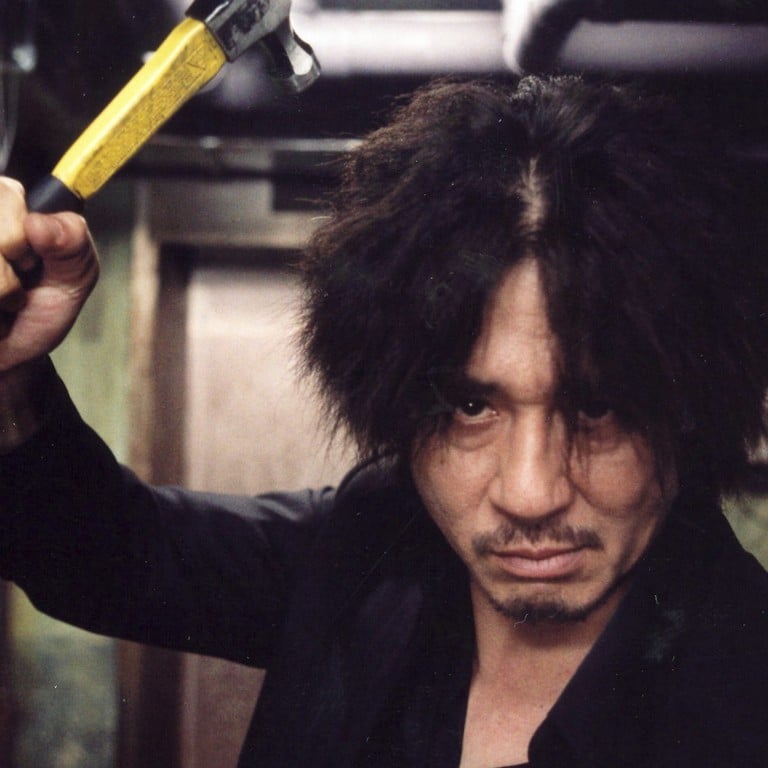Park Chan-wook, the director who put Korean cinema on the map before Bong Joon-ho, with The Handmaiden and The Vengeance Trilogy

That is a shame since Park’s creative output has probably been more consistent and inventive than Bong’s throughout their careers. Park rose to prominence internationally with his famous Vengeance Trilogy –Sympathy for Mr Vengeance, Oldboy and Lady Vengeance – in the 2000s. But he has a number of other critically acclaimed films to his name such as Joint Security Area, Thirst and The Handmaiden, all of which – a measure of Park’s talent – successfully tackle different themes across different genres.
3 ace movies from best picture Oscar-winner Parasite director Bong Joon-ho
Bong may currently be grabbing the headlines and praise, but Park remains a bravura filmmaker and a director whose work everyone should see. If you’re unfamiliar with the man, here are five things you should know.
His first films were flops
Although he would develop into an acclaimed director, success was not instant for Park. His first film The Moon Is … the Sun’s Dream (1992), about a gangster who has an affair with his boss’ lover, sank without a trace. Park has said the film was so unsuccessful he himself, writing under a different name, was the only person to review it. Five years later he released Trio, which also met with little success. These days the films are relatively forgotten, unavailable for Western audiences and considered unworthy of a director of Park’s eventual talent. It wasn’t until Joint Security Area, released in 2000, that Park found his groove.
He is a self-taught filmmaker
Park’s cinematic education was nothing like as formal as that which exists in Western countries. For much of the 1980s South Korea was ruled by a military dictatorship that restricted certain foreign films. At university, Park studied philosophy. He eventually established a film club as he was hankering for a more creative outlet. Given the political situation, Park’s club had to use illicit VHS copies when showing foreign movies. And those TV channels that did occasionally show edgier international fare in South Korea at this time often did so without Korean subtitles. Park watched them anyway and credits this with helping him develop his particular visual style of filmmaking.
5 Korean films remade by Bollywood – how do they compare?
Revenge is not something to be celebrated
Although Park rose to prominence on the back of his Vengeance Trilogy, none of the triptych was intended to celebrate the notion of revenge. Each is slick and stylish in its own way, and there is a certain gratification in some of the violence unleashed, but ultimately all three seek to lay bare the emptiness of revenge. In fact, in each film, in different ways, the central characters’ quest for revenge is self-harming. On top of that, through his stories’ twists and turns, Park’s protagonists find themselves morally soiled and lacking basic justice by the time their revenge is achieved.
Despite the violence, Park’s films are often humorous
With so much violence in his work, and a number of dark themes too, you could be forgiven for thinking Park’s oeuvre is unrelentingly bleak. Yet the director’s work is punctuated with frequent flashes of humour, even if such laughs come from a dark place. One memorable scene from Sympathy for Mr. Vengeance shows Park’s tragicomic sensibilities at their finest. In it a group of horny teenagers press their ears to the wall of a flat, getting off on the sounds of a woman enjoying sexual satisfaction. At least that is what the boys think. As the camera pans through the walls and into the neighbouring flat, the woman’s moans of ecstasy are shown to be cries of pain as she battles a lethal medical condition.
Loved Parasite? Watch 5 more twisted Korean movies
He is sometimes considered a feminist director
In recent years Park has come to be considered a feminist director in certain quarters – all his films since 2003’s Oldboy having used female protagonists. Although the director has said this is coincidence, he has admitted that he felt dissatisfied that the primary female character in Oldboy was the only one by the movie’s conclusion to not be aware of the film’s revelations and truth – and what it ought to have meant for her. This spurred Park to create his next film, Lady Vengeance.
His choice of main characters aside, Park’s films can also be viewed thematically as feminist, too. In particular, his most recent work, The Handmaiden (2016), contains feminist notions. In one scene, the film’s female leads destroy the physical manifestations of the patriarchal order they are subjected too. Although some criticise the The Handmaiden’s erotic nature for objectifying women, others see the film as ultimately setting its female characters free from the male gaze that dominates both the film and the society it depicts.
Want more stories like this? Sign up here. Follow STYLE on Facebook, Instagram, YouTube and Twitter .

Called the country’s most famous director long before Parasite and Bong Joon-ho’s surprise Oscars success, Park’s varied output is both dark and humorous – and often favouring female leads